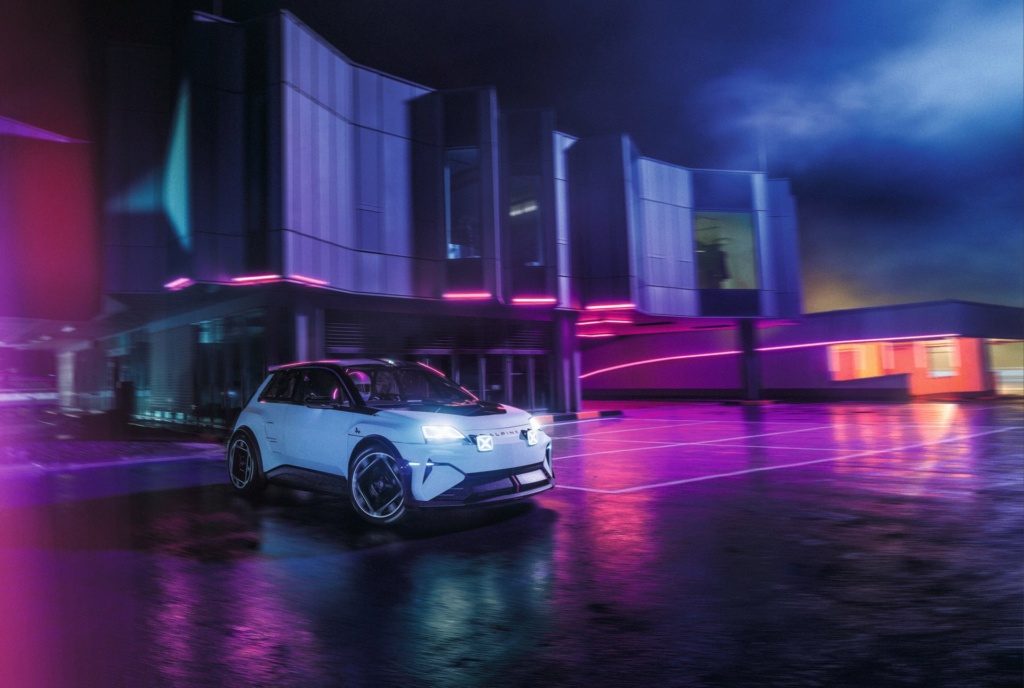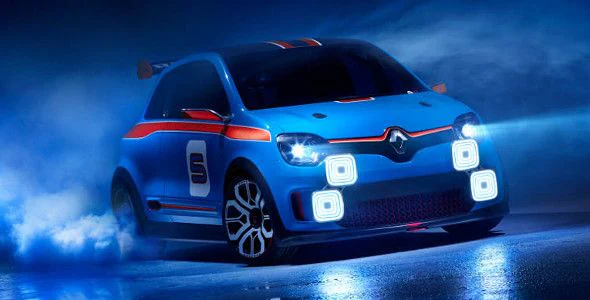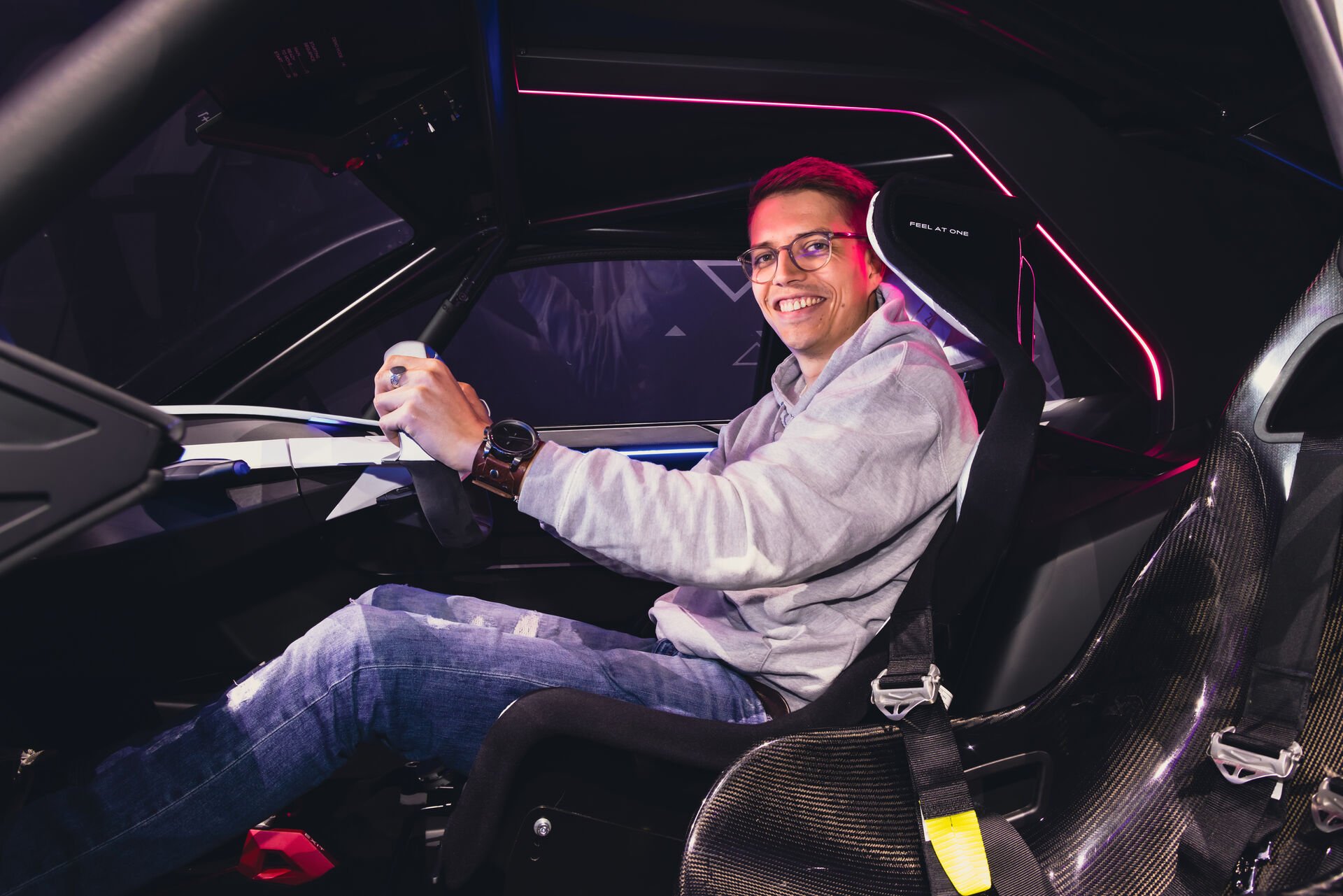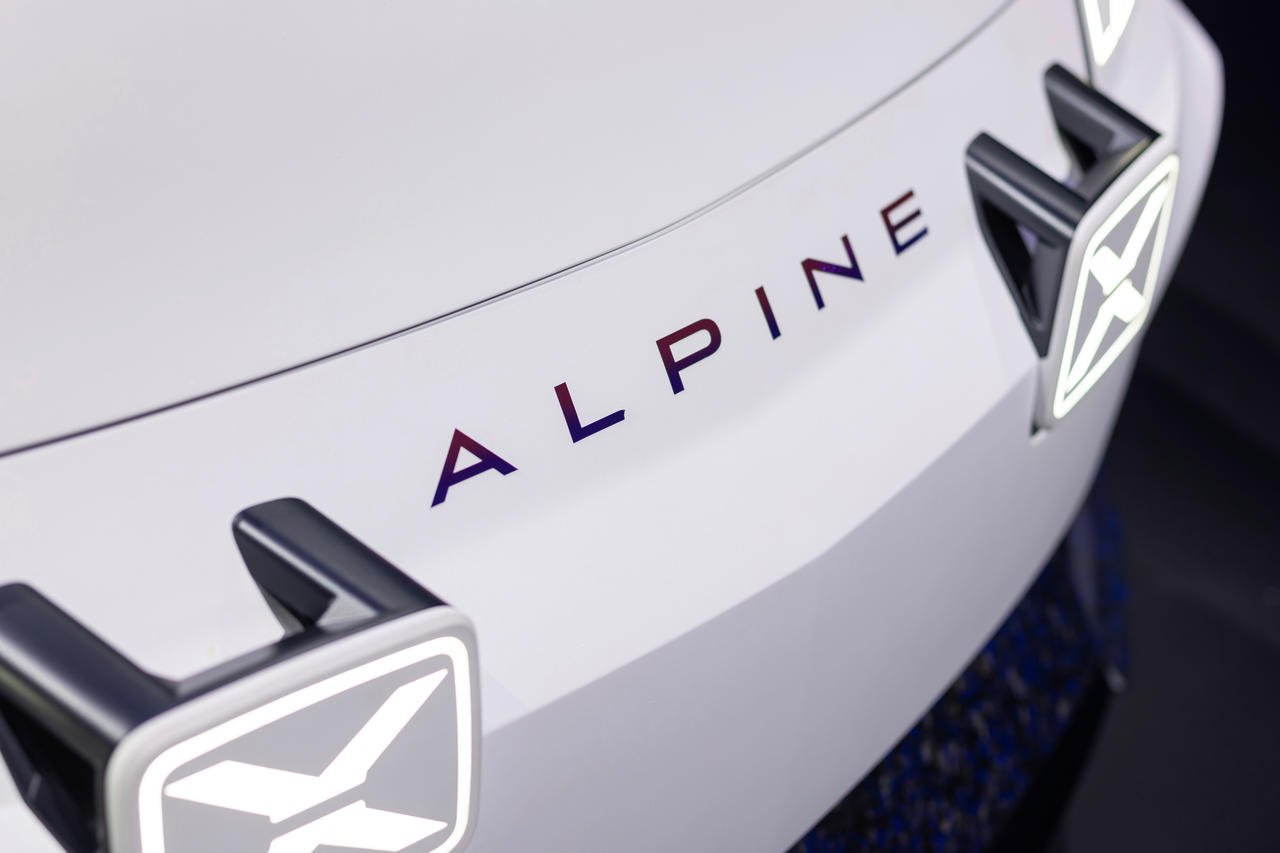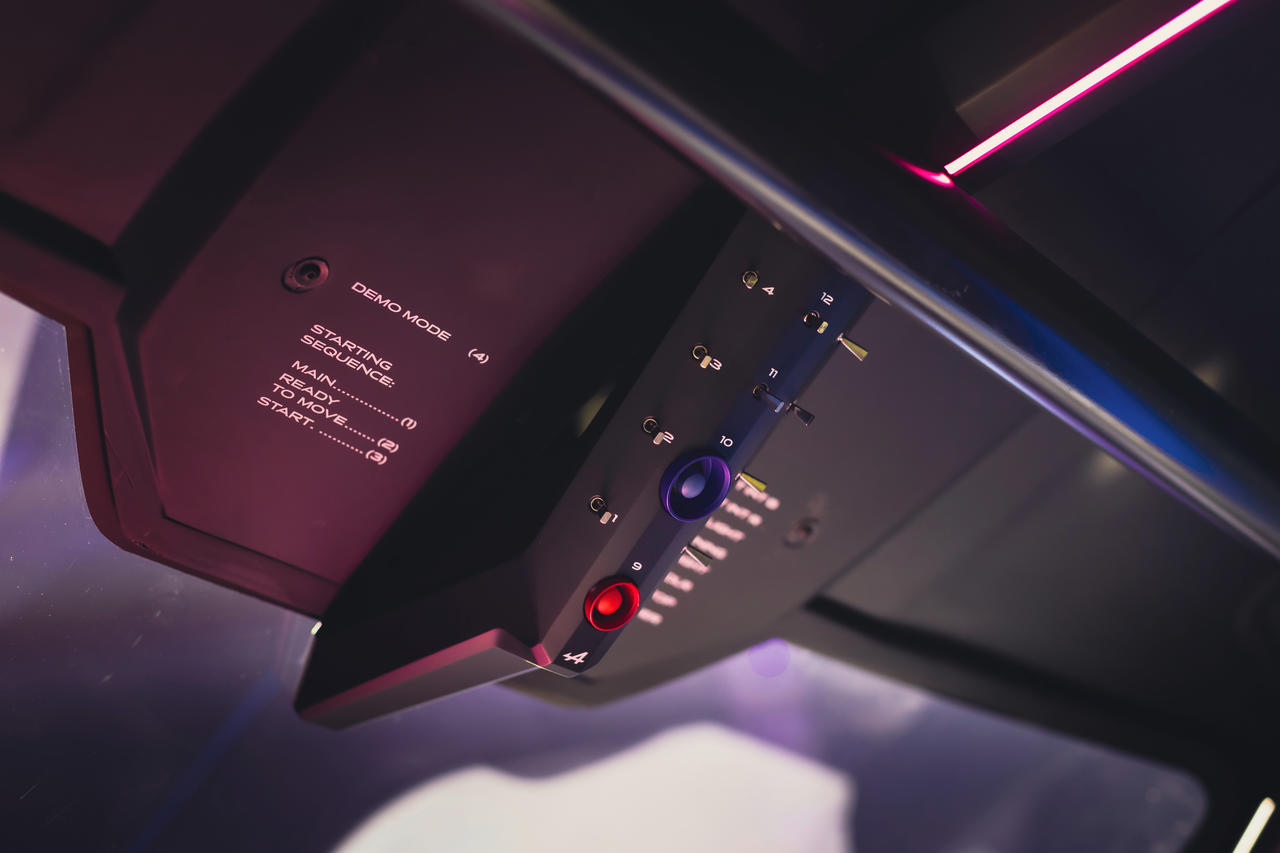Etiquetado: 2022 Alpine R5, 2022 Renault 5, 2022 renault r5, 2023 Alpine R5, 2023 Renault 5, 2024, 2024 Alpine A290, 2024 Nissan Micra VI, 2024 R5, 2024 Renault 5, 2024 Renault5, Alpine, Alpine A290_B Concept (2023), Alpine R5, Nissan, Nissan Micra MK6, Nuevo renault 5, R5, Renault, Renault 5, Renault 5 [B1316] | Alpine A290 (2024), Renault 5 2024, renault 5 concept, Renault 5 foro, Renault 5 Prototype (2021), renault r5 2022, renault r5 2023, Renault5, usuarios
- Este debate tiene 1,223 respuestas, 57 mensajes y ha sido actualizado por última vez el hace 3 semanas por
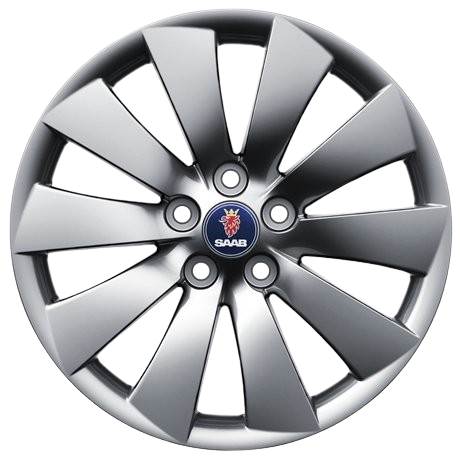 The_Osco.
The_Osco.
-
Pequeña comparativa entre la silueta presentada en 2021 y la actual.

fuente: https://lignesauto.fr/?p=28840Yo creo que le han puesto un alerón más producible y que parezca menos concept.
Un poco como pasó con el urbalrebel de cupra
Que no iba a ser un 5 dopado 🤣🤣
Al menos el concept es un 3 puertas, lo cual es bueno…
No sería mala jugada que el alpine solo fuera 3 puertas, menos peso, más deportivo
Es que el Twinfun intentó ser un «revival» del 5 turbo, con algún detalle estilo Alpine como los faros frontales. De ahí algún parecido en alguna cosa
Es más o menos lo que se esperaba, un R5 «culogordizado». Se ve bastante bonito, y seguramente el de serie va a cambiar poco. Lamentablemente creo que una de las cosas que van a cambiar es el número de puertas, no creo que hagan el gasto de hacerlo 3 puertas solo para el Alpine (estaría de P.M). Se parece bastante al Twinrun porque básicamente ambos homenajean el mismo coche.
No espero nada mucho más diferente que el Renault 5 concept
Pues yo creo que si será diferente al 5 concept…básicamente porque apenas tenía interior 😂
Y porque no se, me parece que el conductor está en medio del coche, no en un lado…
Presentado.
El A290, el futuro deportivo eléctrico de la nueva era alpina, se presenta bajo las características espectaculares y ultradeportivas del show car A290_β (A290 “beta”). El primero de los tres modelos del futuro “Dream Garage” será un deportivo de nueva generación, 100% eléctrico, diseñado para despertar el espíritu competitivo en todos y reinventar la deportividad en el día a día.
El A290_β inicia este nuevo capítulo en la fascinante historia de Alpine. Basándose en su herencia y su ADN deportivo, la marca se propone conquistar nuevos segmentos, en primer lugar el dedicado a los deportivos urbanos. A través de su diseño, materiales y tecnologías, este show car ilustra una nueva forma de experimentar la deportividad eléctrica, ofreciendo tantas emociones al conductor como a sus pasajeros. En un momento en que la movilidad libre de carbono se vuelve esencial en el sector automotriz, el Alpine A290_β es más que un automóvil de exhibición, también es la encarnación de una ambición fuerte y comprometida de la marca, en beneficio de una deportividad sostenible.


































Fuente: Alpine
Asiento central, lo que me imaginaba
De 3 asientos, como el McLaren F1. Está claro que ese interior no llega a la serie ni de broma
No, no llegará a la serie, lo que si llegará a la serie es el exterior (al 85%), entre las cosas confirmadas, lo que llegará a serie son: las proporciones, los faros, las llantas y la trasera.
Nota de prensa, en inglés
A290_β: Alpine unveils its vision of the electric hot hatch for everyday driving
The A290, the future compact B-segment electric sports car in Alpine’s new era, shines through the spectacular, ultra-sporty A290_β (A290 beta) show car. The first of the three models in the future “Dream Garage” will be a new-generation, full-electric sports car designed to trigger every driver’s competitive spirit and recast the notion of sports cars.
The first car in Alpine’s new era
The A290_β, in other words, is opening a new chapter in Alpine’s enthralling history. The brand is tapping into its motor-sports heritage and essence, and venturing into new segments starting with an urban sports car. The show car’s design, materials and technology encapsulate a new angle on electric cars that are just as suited for motor-sports tracks as they are for everyday drives – and as exciting for the driver as they are for passengers. And, as low-carbon mobility is becoming a sine qua non in the automotive sector, the Alpine A290_β is more than a show car: it embodies the brand’s strong stand and unwavering commitment to sustainable motor sports.
A forward-looking name
The decision to call the car A290_β is based on the Alpine brand’s global naming strategy. The names start with the letter A, followed by three numbers. The number 2 stands for the B-segment and the 90 stands for the brand’s future Lifestyle range. The Greek letter beta indicates an intermediate phase working up to the production vehicle’s official launch in 2024.
The A290_β is the first stage in Alpine’s new era, the first step towards the all-electric Dream Garage in 2024. This urban show car has rewritten the playbook for electric hot hatches. The A290_β is tapping into its rich legacy and ushering Alpine into the future, with an everyday experience of the motor sports spirit that has inspired the brand since its inception.Laurent Rossi, CEO, Alpine
El nombre no podría estar más pillao con pinzas…
Entiendo que no se llamará así el de producción porque por el mismo token pisan la nomenclatura del A110 siguiendo la misma explicaciónClaramente lo de 3 puertas es cosa del concept porque hasta tiene el corte de las puertas traseras.
Evidentemente el modelo definitivo conservará las 5 puertas del R5.
Una pena que la prolongación del parabrisas hacia el frente no se conservará en el de serie, es un detalle muy original. Supongo harán algo que lo simule en plástico.
El diseño tiene muchos pequeños detalles muy cuidados.
La «toma de aire» en la aleta trasera, de la misma forma del R5 turbo, que no tendría sentido en este tipo de coche, es en realidad la salida de aire del sistema de ventilación de las baterías.
En el frente entre los grupos ópticos y en el paragolpes, el R5 eléctrico tiene una superficie continua de lado a lado, sin embargo en el Alpine hay una arista vertical por el centro que recuerda mucho a los A310 y GTA.
El alerón trasero que parte desde los «vierteaguas» es otro detalle que viene directamente desde el «culogordo».
Las llantas tienen mil detalles de diseño, aunque creo que no van a ser del gusto de todo el mundo.
Ojalá que el peso sea medianamente contenido, podría ser un digno sucesor de los Clio sport.
- Regístrate para participar en el debate, puedes iniciar sesión desde el menú superior derecho o registrándote desde el botón "Regístrate" en el final de la página.


